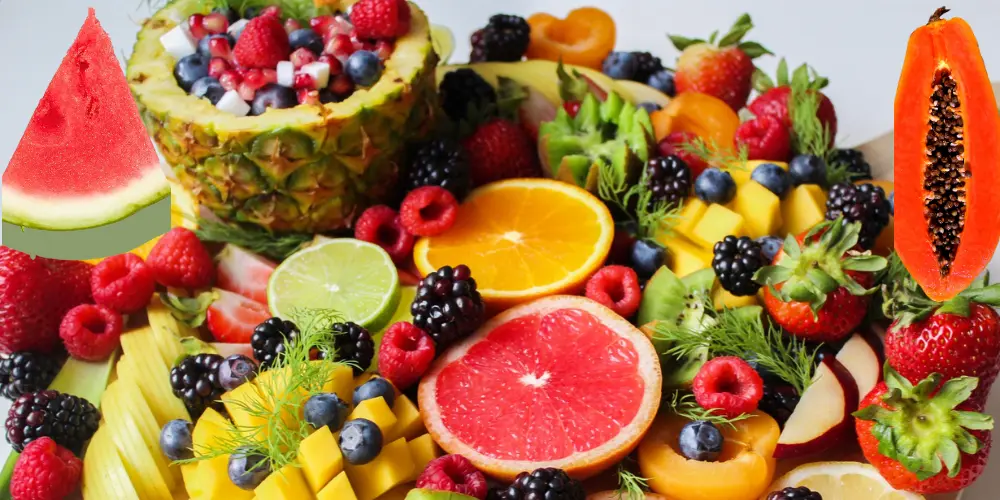Fruits Good for Kidneys play a vital role in maintaining renal health through natural nutrients. The kidneys are essential organs that help maintain overall health in the human body. These bean-shaped organs are responsible for filtering waste from the bloodstream, balancing electrolytes, and controlling blood pressure levels. Maintaining healthy kidneys is essential, and diet plays a key role in achieving that.
Fruits, rich in vitamins, minerals, antioxidants, and water, can significantly support kidney function. In this article, we’ll explore the top 10 fruits good for the kidneys, explain how they benefit our body, and also share tips on how to support kidney health through our diet naturally.
Why Is Kidney Health Important?
Our kidneys work hard every day to:
- Filter 50+ gallons of blood daily
- Regulate pH, salt, and potassium levels
- Remove toxins and waste via urine
- Release hormones for controlling blood pressure and generating red blood cells
- Help activate vitamin D for bone health
When kidneys are damaged due to diabetes, high blood pressure, infections, or poor lifestyle habits, they lose the ability to function properly. Chronic Kidney Disease (CKD) is a serious global issue affecting millions of people.
Fortunately, choosing the right foods can support kidney function and reduce the risk of worsening damage. That’s where fruits come in!
What Makes Fruits Good for Kidneys?
The benefits of fruits for kidney health aren’t all the same. Some contain high levels of potassium or oxalates, which may be harmful to people with kidney issues. The best fruits for kidneys are typically:
- Hydrating
- High in antioxidants and vitamins
- Low to moderate potassium content (especially for chronic kidney disease patients)
- Anti-inflammatory
- Naturally low in sodium and phosphorus
Top 10 Fruits Good for Kidneys
Now, let’s dive into the top 10 fruits good for kidneys that we should consider adding to our diet.
1. Apples
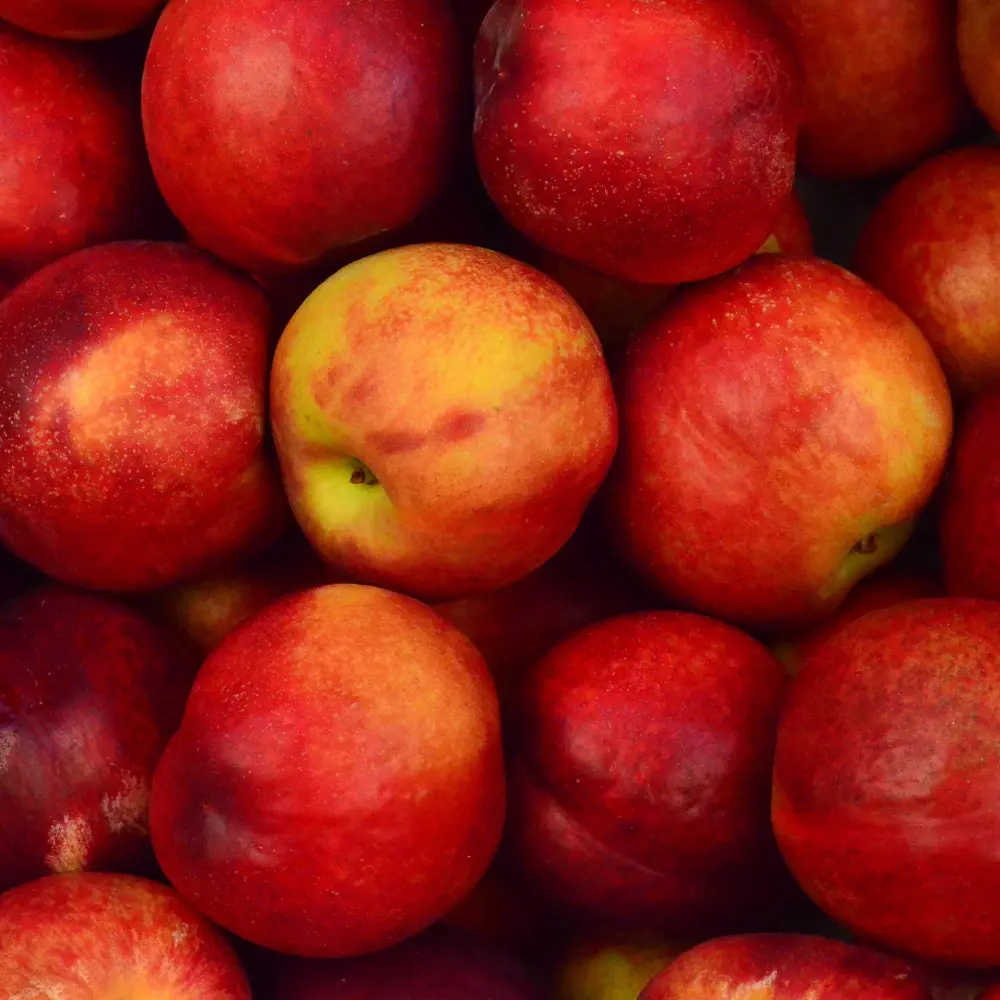
Why they’re good: Apples are rich in fiber and antioxidants, particularly quercetin, which helps reduce inflammation and prevent kidney damage. They’re low in potassium, making them safe for most people with kidney disease.
Health benefits:
- Supports heart and kidney health
- Helps control blood sugar
- Aids digestion and weight management
How to enjoy: Eat raw, add to salads, or cook into unsweetened applesauce.
2. Blueberries
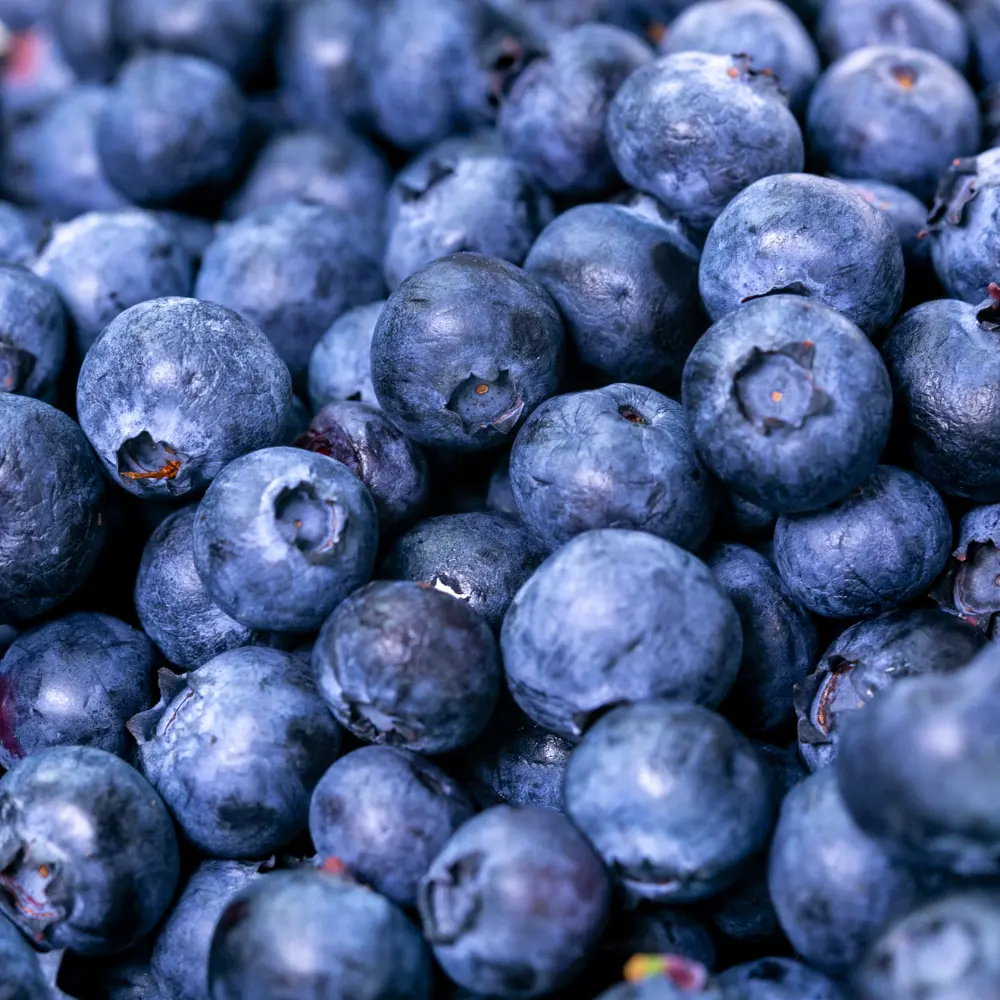
Why they’re good: Blueberries are packed with antioxidants, especially anthocyanins, which combat oxidative stress, a key factor in kidney disease.
Health benefits:
- Supports kidney and brain health
- Low in potassium and sodium
- Helps manage blood pressure
How to enjoy: Add to smoothies, oatmeal, or yogurt.
3. Cranberries
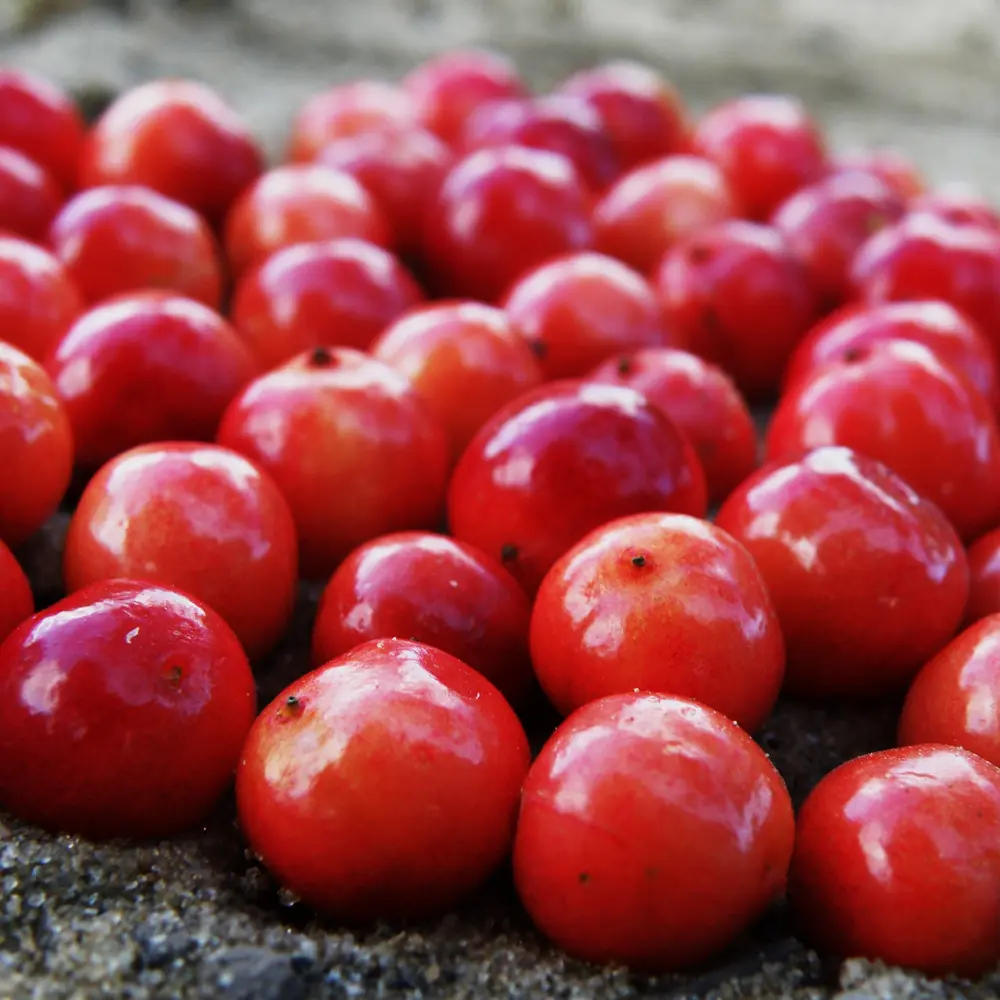
Why they’re good: Famous for their role in preventing urinary tract infections (UTIs), cranberries also help reduce kidney inflammation and the risk of infection.
Health benefits:
- Prevents UTIs
- Reduces inflammation
- Contains polyphenols and vitamin C
How to enjoy: Drink unsweetened cranberry juice or eat dried cranberries in moderation.
4. Strawberries
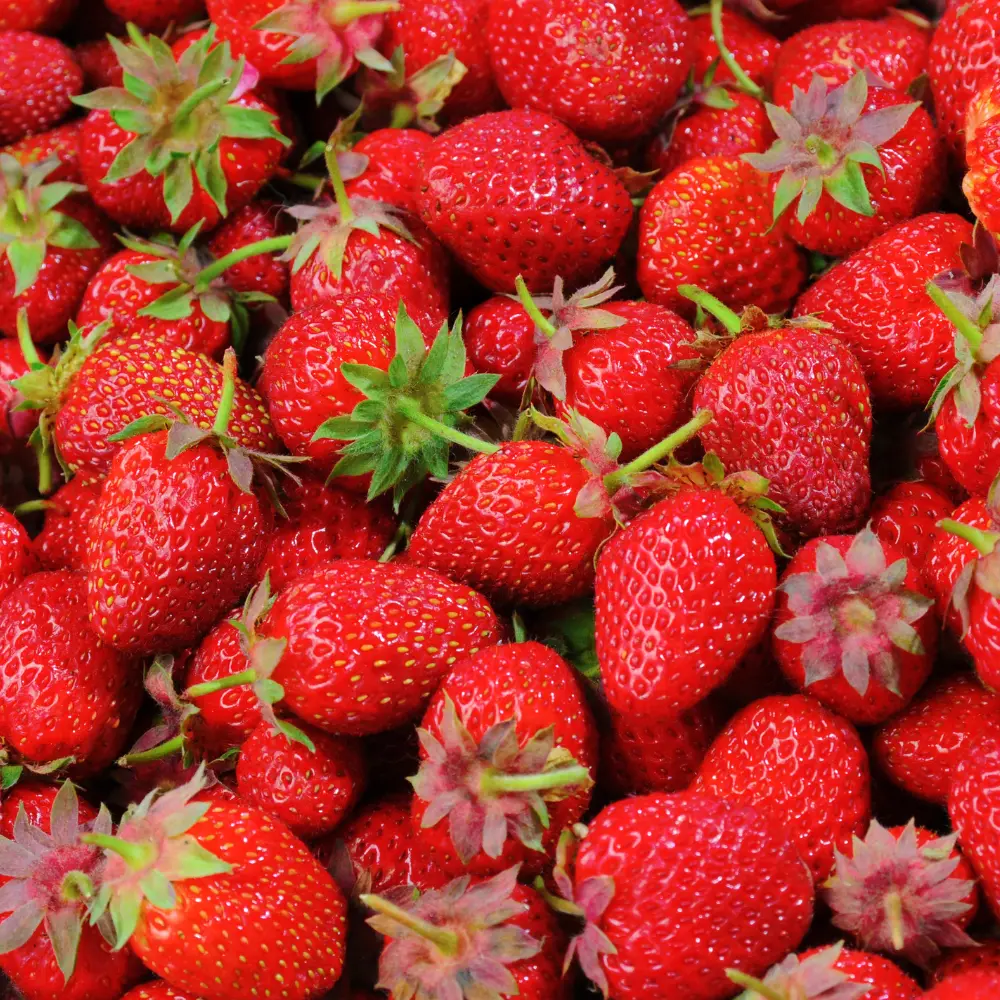
Why they’re good: Strawberries deliver essential nutrients like vitamin C and manganese, along with a wealth of antioxidants. Their anti-inflammatory properties contribute to better kidney function and overall health.
Health benefits:
- Protects against oxidative damage
- Supports immune function
- Low potassium content
How to enjoy: Fresh as a snack, in smoothies, or as a dessert topping.
5. Pineapple
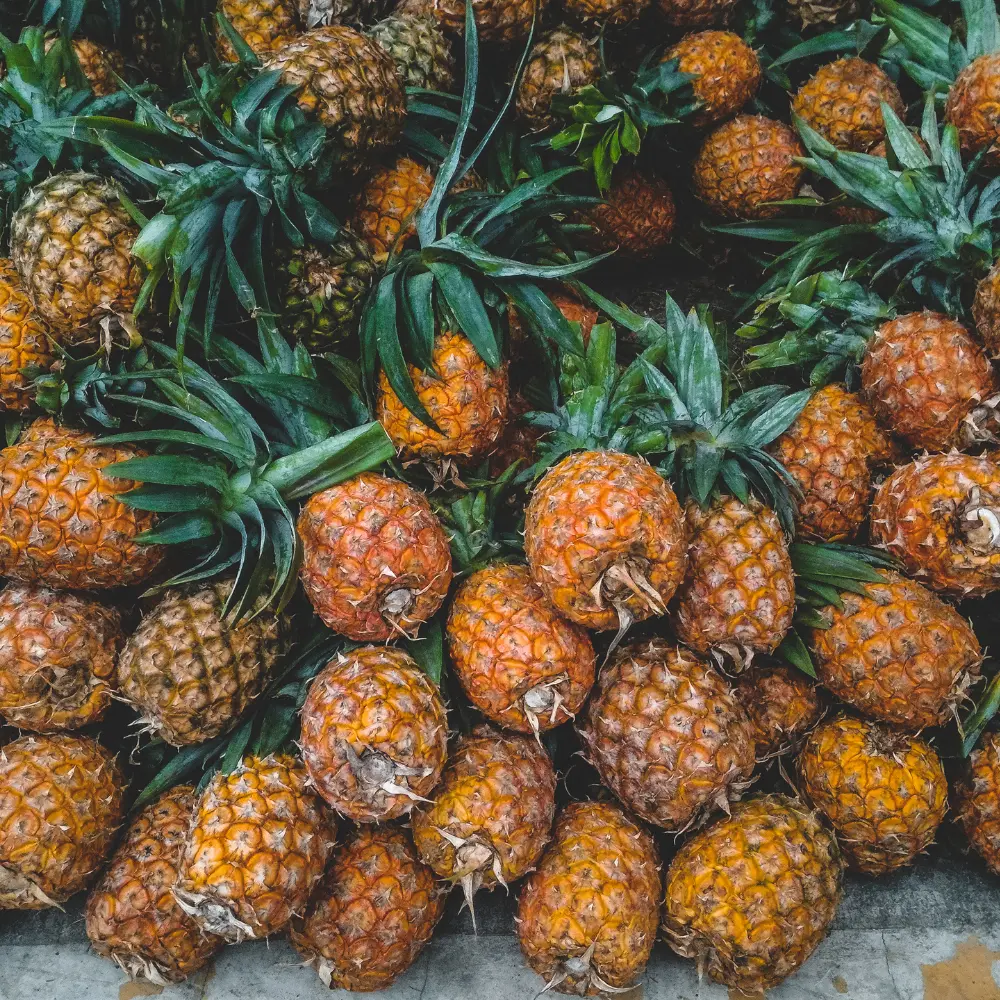
Why they’re good: Unlike bananas and oranges, pineapple is low in potassium and contains bromelain, an enzyme that may help reduce inflammation.
Health benefits:
- Boosts digestion
- Supports immune health
- A great alternative to high-potassium fruits
How to enjoy: Fresh slices, pineapple salsa, or in tropical smoothies.
6. Red Grapes
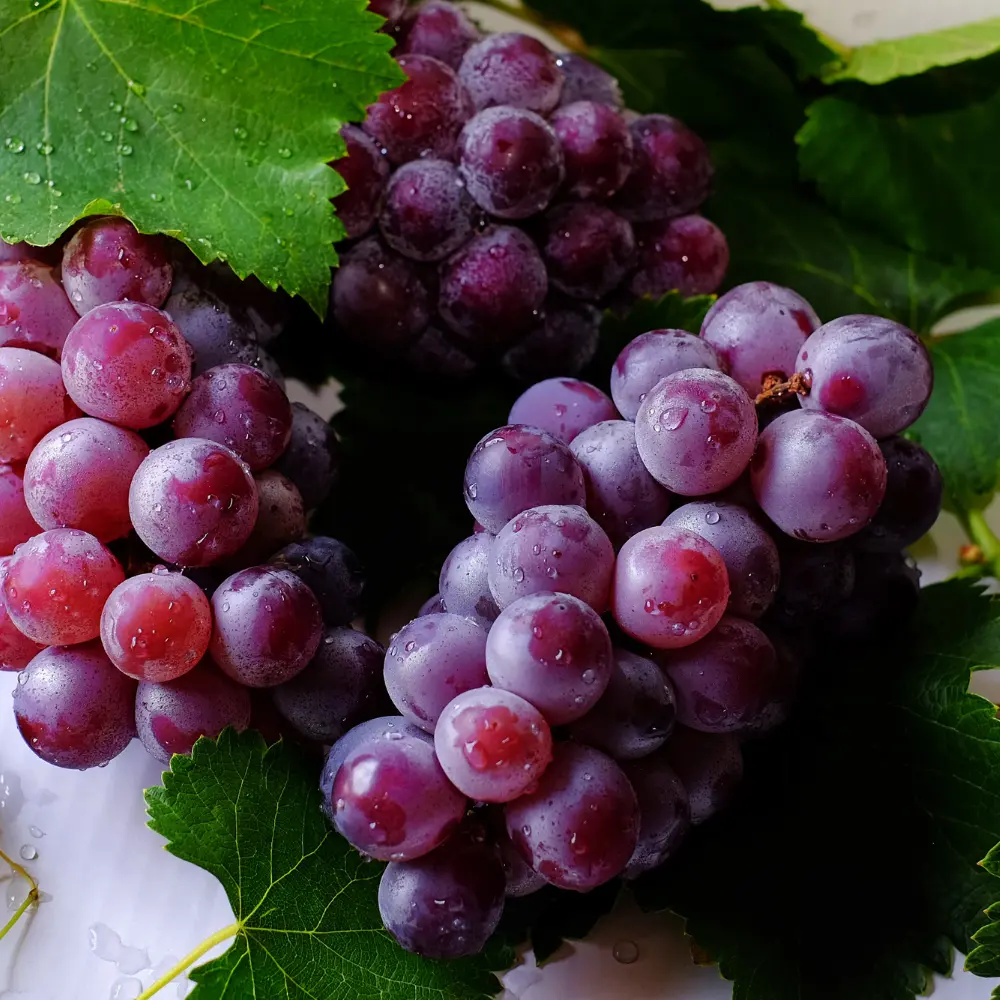
Why they’re good: Red grapes are loaded with flavonoids and resveratrol, which protect against inflammation and reduce the risk of kidney disease.
Health benefits:
- Supports kidney filtration
- Promotes heart health
- Helps reduce oxidative stress
How to enjoy: Eat as a snack, freeze for a healthy treat, or add to salads.
7. Watermelon
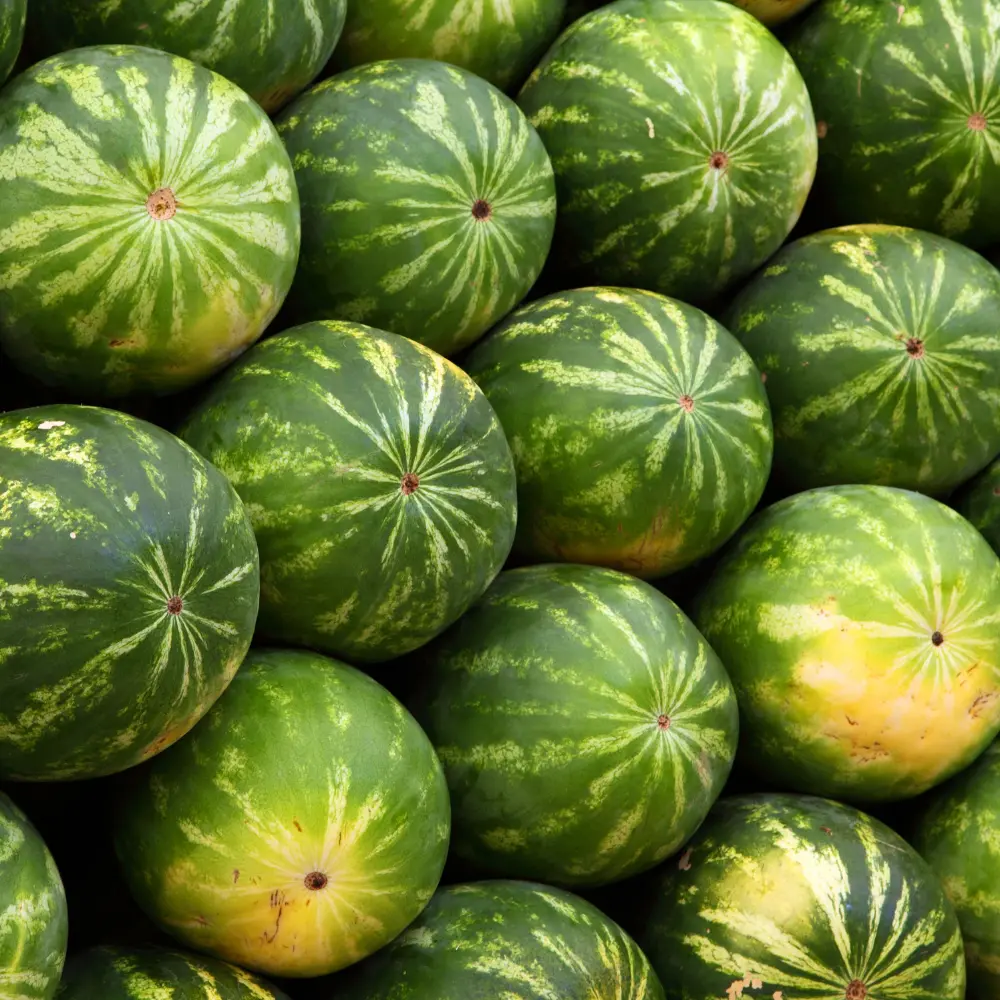
Why they’re good: High in water content, watermelon helps flush toxins and supports hydration, which is essential for kidney function.
Health benefits:
- Natural diuretic
- Low potassium (in moderate amounts)
- Aids in detoxification
How to enjoy: Fresh cubes, in fruit salads, or blended into a juice.
8. Cherries
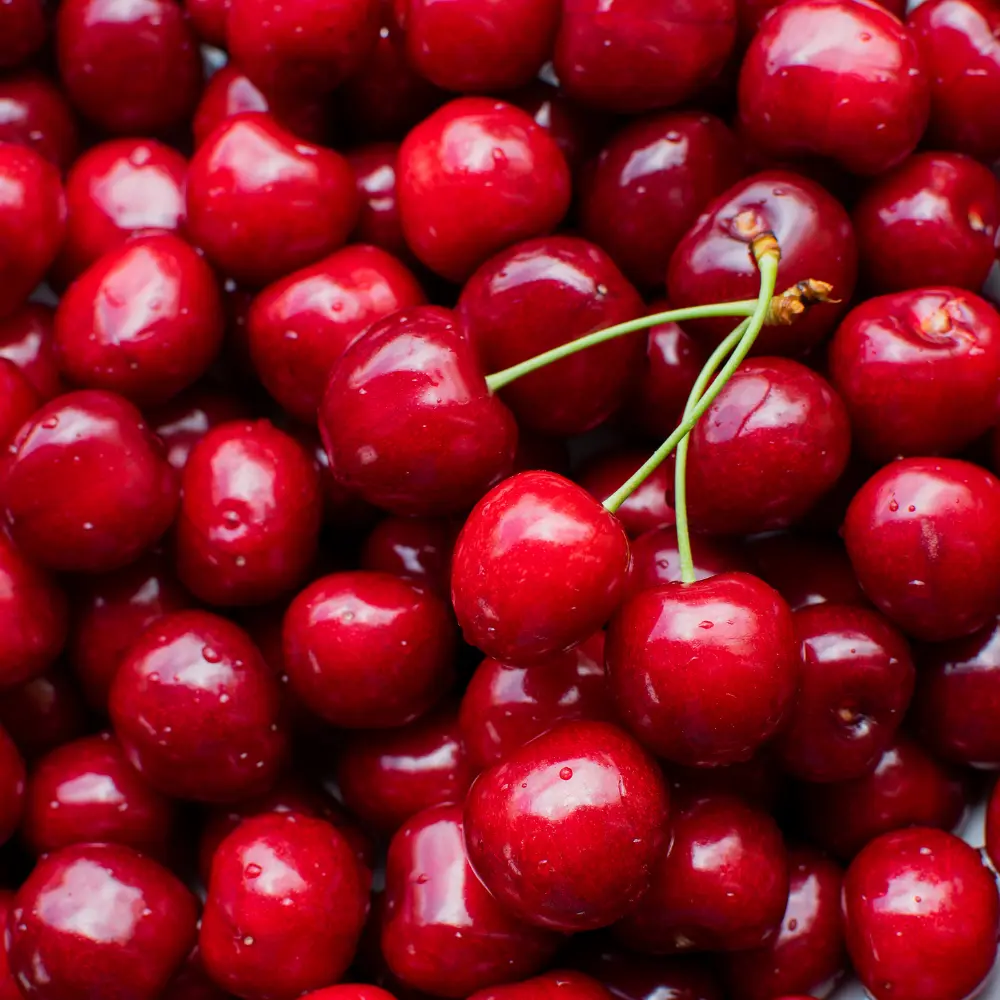
Why they’re good: Cherries have high levels of antioxidants and phytochemicals that reduce inflammation and improve kidney and heart health.
Health benefits:
- Reduces uric acid levels (beneficial for kidney stones and gout)
- Supports immune system
- Helps with joint pain
How to enjoy: Fresh or frozen cherries, cherry juice (unsweetened), or dried cherries in moderation.
9. Guava
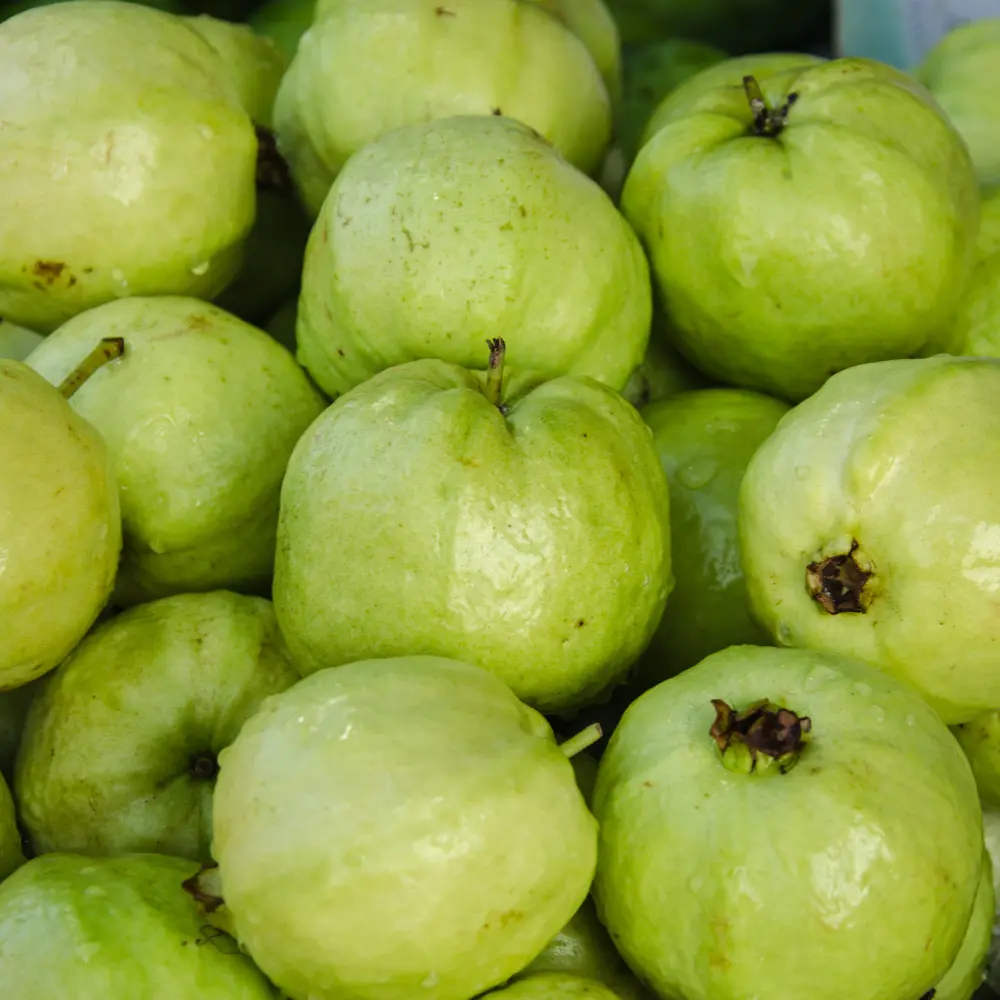
Why they’re good: Guava is rich in vitamin C and lycopene. Though it contains more potassium than others on this list, it’s beneficial in moderation for those without advanced kidney disease.
Health benefits:
- Boosts immunity
- Regulates blood sugar
- Contains fiber for digestive health
How to enjoy: Eat raw, make guava juice, or add to fruit bowls.
10. Papaya
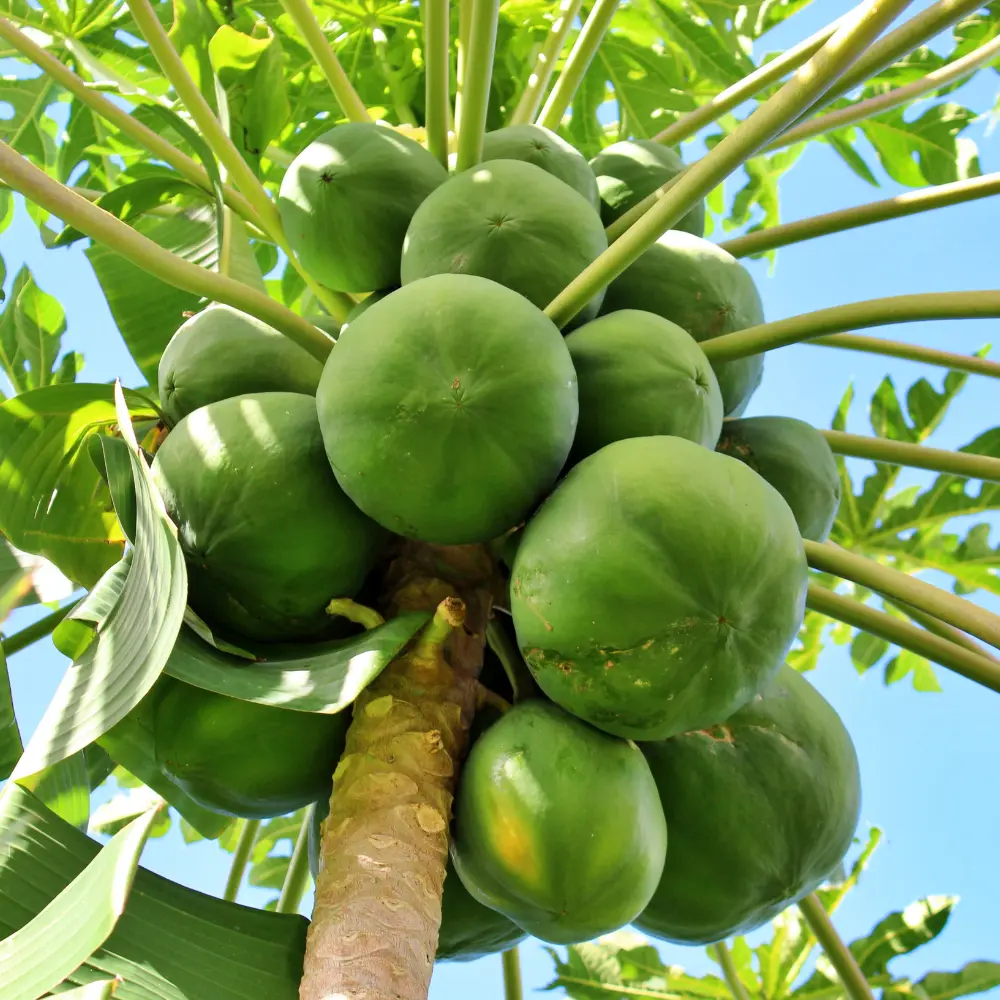
Why they’re good: Papaya contains papain, an enzyme that supports digestion and may help reduce kidney inflammation. It also contains a rich supply of antioxidants, including beta-carotene.
Health benefits:
- Supports detoxification
- Anti-inflammatory effects
- Helps reduce oxidative stress
How to enjoy: Fresh papaya slices or add to smoothies and salads.
Bonus Tips to Support Kidney Health Naturally: Incorporating Fruits Good for Kidneys
Adding fruits to the diet is just one step. Here are more natural ways to boost kidney health:
1. Stay Hydrated
Drink plenty of water throughout the day to help kidneys flush out toxins effectively.
2. Limit Salt and Processed Foods
Too much sodium can increase blood pressure and harm kidneys. Choose fresh, whole foods whenever possible.
3. Control Blood Sugar and Blood Pressure
Kidney damage is most commonly caused by high blood pressure and diabetes. Regular medical check-ups and a balanced lifestyle are key to staying well.
4. Maintain a Healthy Weight
Obesity puts extra pressure on kidneys. Eat balanced meals and stay active.
5. Avoid Smoking and Excessive Alcohol
Smoking and heavy alcohol consumption can increase the risk of kidney disease and other serious health issues.
Final Thoughts on the Top 10 Fruits Good for Kidneys
Kidneys are our body’s natural filtration system, and they deserve care and attention. By incorporating these top 10 fruits good for kidneys into our diet and following kidney-friendly lifestyle tips, we can take meaningful steps toward better kidney health.
Whether to prevent kidney issues or manage an existing condition, small dietary changes can make a big impact. Always consult a healthcare provider or a renal dietitian for personalized guidance, especially if you have chronic kidney disease.
Stay healthy, eat wisely, and let nature support your kidneys—one fruit at a time!
Frequently Asked Questions on the Top 10 Fruits Good for Kidneys
1. What fruits are best and considered Fruits Good for Kidneys?
Fruits that are low in potassium, rich in antioxidants, and anti-inflammatory are best for kidney health. Examples include apples, strawberries, blueberries, cranberries, pineapple, and red grapes. These fruits help reduce oxidative stress, support hydration, and promote overall kidney function.
2. Are bananas included in the list of Fruits Good for Kidneys?
Bananas are high in potassium, which can be harmful for people with chronic kidney disease (CKD) or those on dialysis. If you have healthy kidneys, moderate banana intake is fine, but if you have kidney issues, it’s best to consult your doctor or dietitian before including bananas in your diet.
3. Can eating too much fruit, even Fruits Good for Kidneys, harm your kidneys?
While fruits are healthy, consuming them in excess (especially those high in sugar or potassium) can strain the kidneys, particularly in individuals with impaired kidney function.
4. Which fruit helps flush out the kidneys and is considered one of the Fruits Good for Kidneys?
Watermelon is a natural diuretic and has a high-water content, which helps flush out toxins and supports kidney cleansing. Fruits that hydrate, such as cranberries and apples, also support kidney detoxification.
5. Are citrus fruits like oranges and lemons good for kidneys?
Oranges may not be suitable for people with kidney disease because of its high potassium content. However, lemons are low in potassium and contain citrate, which can help prevent kidney stones. Lemon water is often promoted as a natural remedy to help reduce the risk of kidney stone formation.
6. What fruits should be avoided with kidney disease?
People with kidney disease may need to restrict or avoid high-potassium fruits like bananas, oranges, kiwis, cantaloupe, and avocados. Always follow your doctor’s dietary advice based on your kidney function and potassium levels.
7. How do antioxidants in fruits help kidney health?
Antioxidants help protect kidney cells from damage caused by oxidative stress and inflammation. Fruits like blueberries, cherries, and strawberries are rich in antioxidants that support kidney repair and reduce the risk of chronic kidney disease progression.
8. Is it safe to drink fruit juices for kidney health?
Natural, unsweetened fruit juices in moderation can be part of a kidney-friendly diet. However, juices with added sugar or high potassium content must be avoided. Cranberry juice and apple juice are often recommended for people with kidney issues.
9. How can I naturally improve my kidney function through diet?
Eat a balanced, low-sodium diet with plenty of kidney-friendly fruits and vegetables, drink plenty of water, limit processed foods, control your blood pressure and blood sugar, and avoid excessive protein, salt, and phosphorus intake.
10. Should I consult a doctor before changing my diet for kidney health?
Yes, especially if you have existing kidney conditions. A healthcare provider or renal dietitian can help you create a personalized, safe, and effective eating plan tailored to your specific needs and health status.
While focusing on fruits good for kidneys is crucial for detox and hydration, it’s equally important to avoid foods that harm other vital organs. If you’re concerned about men’s health, don’t miss our guide on the Ten Worst Foods for Prostate Health (And What to Eat Instead).

